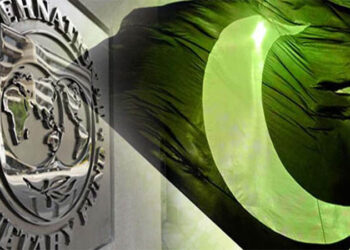
Since mid-December, Pakistan has experienced political and economic volatility that is extraordinary even by Pakistani standards.
The fragile political structure that began to be erected following the resumption of civilian government in 2008 is now shaking. A key source of this unrest is Tahirul Qadri, a Toronto-based cleric who arrived in Lahore in early December. Ten days later, he addressed a mammoth public meeting at the city’s Minar-e-Pakistan grounds, where, a year earlier, the cricketer-turned-politician Imran Khan had launched what he not very appropriately termed a political tsunami.
Qadri issued a 20-day ultimatum to the government in Islamabad to purge the political system of rampant corruption, reconstitute the Election Commission, and appoint a caretaker administration to oversee the upcoming vote. The caretakers, he said, should include technocrats, retired military officers, and judges – and could remain in office longer than the constitutionally permitted 90 days. Unless the government took these steps, he would lead a million-man march on the capital.
When the government did not oblige, 50,000 people set out on the fabled Grand Trunk Road to Islamabad, taking 36 hours to complete the 300-kilometre trek. Qadri addressed the marchers repeatedly; liberally mixing political metaphors, he called himself a latter-day Mao Zedong on a journey to launch a system-cleansing jihad and initiate a Pakistani version of the Arab Spring.
On January 10, while Qadri was planning his march, two suicide bombers sent by the extremist Lashkar-e-Jhangvi, a banned group, attacked the Hazara community in Quetta, killing almost a hundred people. The Hazaras reacted to the attack by making the coffins of the dead a symbol of protest. They lined up the dead on Alamdaar Street and refused to bury them until the government dismissed inept and corrupt local officials, led by a local nawab who spent more time abroad or in Islamabad than in the provincial capital. The government succumbed and removed the chief minister and his cabinet, placing the troubled province under the care of the provincial governor.
Five days later, Pakistan’s ever-active Supreme Court ordered the arrest of Prime Minister Raja Pervez Ashraf and 16 other senior government officials for alleged involvement in what was called the “rental power” case. The case dates back to 2008-2011, when Ashraf, who was Minister of Water and Power at the time, oversaw large contracts to rent power generators, which were needed to ease an electricity shortage that was costing the economy up to five per cent of GDP.
Several reports in the print and electronic media suggested that the contracts awarded by Ashraf’s ministry were tainted. Ashraf resigned from the cabinet, only to be brought back later as Prime Minister. In earlier times, crises of much lesser intensity would have brought the military rushing onto the political stage, as happened in 1958, 1969, 1977, and 1999. Indeed, the army has ruled Pakistan for a total of 33 years since independence in 1947.
But this time the soldiers have remained in their barracks, for the simple reason that an awakened populace, an active civil society, and a free and vibrant media would not tolerate another venture into politics by the army. After almost five years of democratic rule, Pakistan is on its way to establishing a durable and representative political order. While it has not produced clean and efficient government, there seems to be considerable comfort in the popular belief that, by working together, Pakistanis will find a way out of the mess in which the country finds itself.
A late-evening meeting of most opposition parties in Lahore on January 16 rejected Qadri’s demands, while telling the government to stay the course toward the general election. A day later, the government found a face-saving formula to send the preacher-politician – and, more important, his followers – home, promising that the Election Commission will be given the time to determine candidates’ eligibility under the relevant constitutional provisions. So, in a way, Qadri’s arrival in Pakistan and his intense political activism have served a purpose: he has reinforced the people’s faith in a system that they are continuing to build. – KhaleejNews












